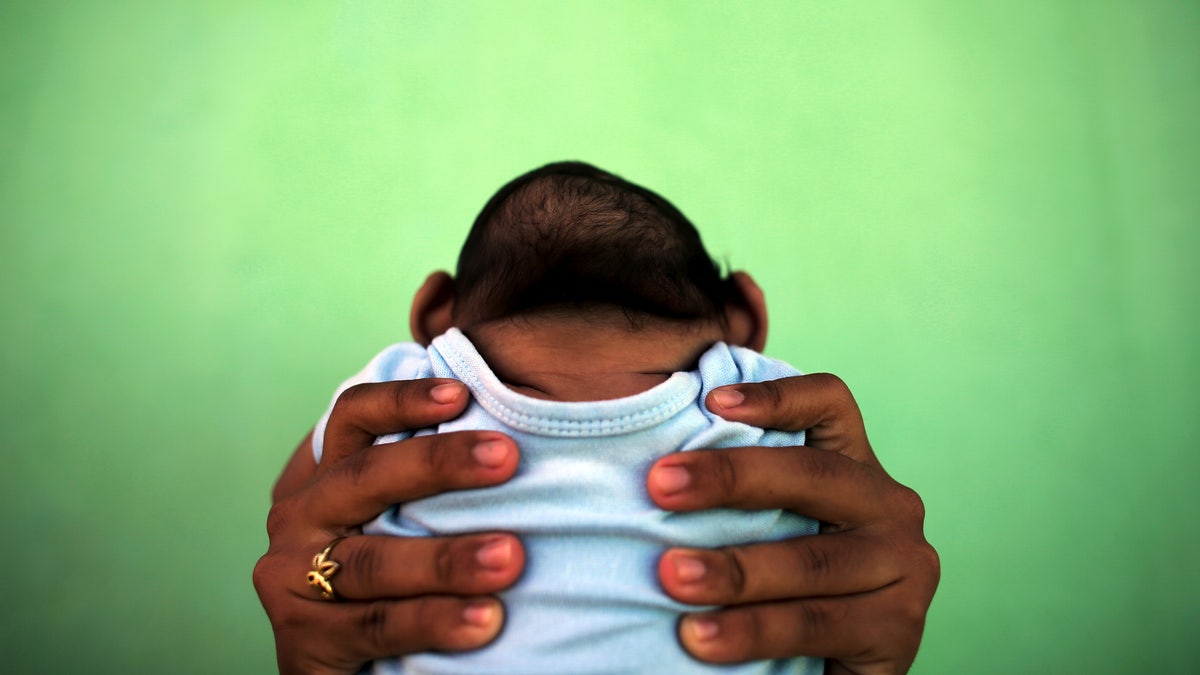
A 4-month-old baby born with microcephaly is held by his mother in front of their house in Olinda, near Recife, Brazil, February 11, 2016. (REUTERS/Nacho Doce/File Photo)
A baby in Brazil who became infected with Zika in the womb still had the virus in his body for months after he was born, according to a new report of the case.
The baby's mother, who lived in São Paulo, showed symptoms of Zika when she was 26 weeks pregnant, according to the report, published today (Aug. 24) in the New England Journal of Medicine.
When the baby was born, he was diagnosed with microcephaly, or an abnormally small head and brain. This congenital condition can be caused by the Zika virus if a woman is infected during pregnancy.
When the baby was nearly 8 weeks old, doctors tested his blood, salvia and urine, and all of the samples tested positive for the Zika virus. Doctors tested the baby again when he was almost 10 weeks old, and the virus was still in his blood.
When adults are infected with Zika, the virus usually stays in the blood for only about a week. (However, in men, the virus may persist in semen for months after infection.)
It's not clear exactly when the baby's infection went away, because doctors didn't test him again until he was 30 weeks (216 days) old. At that time, the virus was no longer in his blood, according to the report from researchers at the University of São Paulo.
The baby's mother may have contracted the Zika virus through sex with her husband, who showed symptoms of Zika about three weeks earlier than the mother, the report said. (The Zika virus can be transmitted by mosquitoes carrying the virus, or through sex.)
Scientists know that other infections that can pass from mother to child during pregnancy, including rubella and cytomegalovirus, can linger for a while in the baby after he or she is born, according to the Centers for Disease Control and Prevention. But until now, little was known about how long the Zika virus may stay in infants who are born infected with the disease, the researchers said.
Original article on Live Science.
Copyright 2016 LiveScience, a Purch company. All rights reserved. This material may not be published, broadcast, rewritten or redistributed.